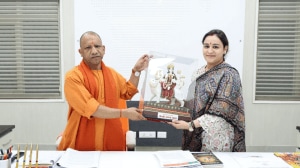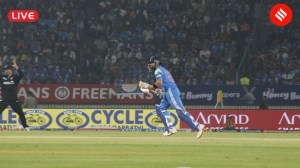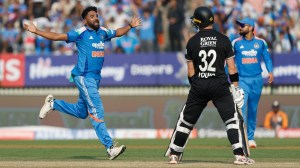Here Dalits can146;t run for a reserved post
They are just three little dots on the map of Madurai district in southern Tamil Nadu. But Pappapatti, Keeripatti and Nattarmangalam8212;ne...

They are just three little dots on the map of Madurai district in southern Tamil Nadu. But Pappapatti, Keeripatti and Nattarmangalam8212;near Chief Minister Jayalalithaa8217;s Andipatti constituency8212;are fast becoming big blotches of shame on the map of Indian democracy.
For several years now, the upper caste Thevars in these three villages have not let a Dalit occupy the panchayat president8217;s post, reserved exclusively for Scheduled Castes.
Panchayat elections have now been announced for the three villages once again8212;the 17th time in the last eight years. But as an Assistant Returning Officer at Keeripatti says: 8216;8216;I don8217;t think anyone will contest the elections this time too.8217;8217;
Since the Panchayati Raj Act came to be implemented in Tamil Nadu in 1996, Dalits have filed nominations in Pappapatti and Keeripatti. But on both occasions, the winners quickly quit the posts after getting elected. And the losers8212;those who filed nominations defying the Thevars8212;have fled the hamlets.
Why? Listen to 37-year-old Thanikodi, who was elected Pappapatti panchayat chief in April 2002 by a whopping majority of 900 votes out of 1,500. He quit before taking charge.
8216;8216;I contested only at the instance of my master, Chellakannu Thevar. But the day I won, thunder struck the house I was given by him. I escaped by God8217;s grace. I realised I had sinned by contesting the election. So I quit to stay alive to feed my four children,8217;8217; says Thanikodi.
Behind his tale of superstition are some stark facts:
8226; Dalits of these three villages belong to the Parayar sub-sect, which has only a miniscule presence in southern Tamil Nadu compared to the dominant Pallar-Dalits
8226; Besides, they are in a pathetic minority8212;less than one-third8212;and economically dependent on the Thevars.
A farm worker on Chellakannu8217;s fields, Thanikodi was asked to contest the polls to defeat another Dalit, E Subban, who had 8216;8216;defied the writ of the Thevars8217;8217;.
After the elections, Subban fled to his sister8217;s house in Chokkathevanpatti hamlet, 10 km away. 8216;8216;How could I continue to live there? They would have done something to me. I have not gone back to the village for the past three years and I don8217;t think I can ever go back,8217;8217; Subban told The Indian Express. But Chellakannu Thevar insists that his community has nothing against Dalits contesting elections. 8216;8216;Everyone is treated as equals here. There8217;s no practice of untouchability,8217;8217; he says, sitting in a tea shop.
But next to him is Dalit woman, Pechiamma, drinking tea in a glass container, while the Thevar customers are served in stainless steel tumblers. 8216;8216;Earlier, they used to give it in coconut shells. Now, it has changed,8217;8217; smiles Pechiamma. As Thevars form a huge vote bank in southern TN8212;the CM8217;s close friend Sasikalaa is a Thevar8212;the two main parties AIADMK and the DMK would rather look away. However, prompted by criticism from the NHRC and the SC/ST Commission, the AIADMK government set up a legislative panel last year, headed by minister O Panneerselvam who is a Thevar. The panel promptly concluded that Thevars were not preventing Dalits from contesting elections.
But a study paper submitted by V Sudarshan and S Sumathi of Madras University to Adidravidar Welfare Department, says: 8216;8216;The committee did not even visit Dalit colonies in Pappapatti.8221;
- 01
- 02
- 03
- 04
- 05































